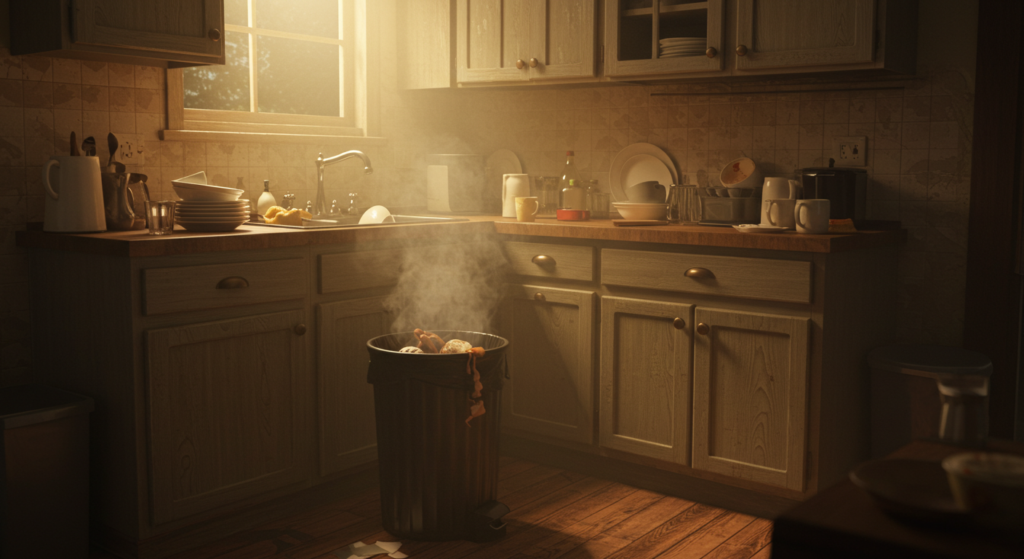Why Ventilation Matters More Than You Think When Cleaning
Better Ventilation Makes a Big Difference in Your Cleaning Routine When you think about a clean home, fresh air might not be the first thing that comes to mind—but it should be. Better ventilation is key to removing airborne particles, odours, and moisture that get stirred up while cleaning. If you skip this step, you could end up with a house that looks clean but doesn’t actually smell or feel fresh. Ventilation supports every cleaning task, making it more effective and longer lasting. In many Toronto homes, especially during colder months, windows stay shut and the air inside becomes stale. Without ventilation, that trapped air holds on to dust, cleaning chemical residues, and humidity. Over time, this can make your space feel stuffy—even if you’ve just deep cleaned. By opening a few windows or turning on fans while you clean, you let that stale air escape and make room for fresh air to circulate throughout your home. Adding airflow also helps speed up drying times for things like freshly mopped floors, steam-cleaned furniture, or bathroom tiles. This prevents moisture buildup, which can lead to mold or mildew—especially in closed-off areas. Whether you’re cleaning your kitchen or your whole house, better ventilation creates a safer, healthier environment. It’s one of those cleaning tips that’s easy to overlook, but makes a big difference in results. Say Goodbye to Lingering Smells with Proper Ventilation Strong cleaning product smells can hang in the air long after the job is done. Whether it’s bleach in the bathroom or disinfectants in the kitchen, those fumes can cause headaches or irritate sensitive lungs. Better ventilation helps flush out those harsh odours fast, so your home smells fresh instead of “chemical clean.” It’s a quick way to improve the comfort and air quality of your space, especially if you’re cleaning regularly. In tightly sealed Toronto apartments or condos, smells tend to get trapped indoors. Without a proper exit path, those odours settle into your furniture, curtains, and carpets. Even eco-friendly products can leave behind a scent that lingers too long without airflow. Keeping a fan running or cracking open a few windows while cleaning will help refresh the entire room and stop smells from sticking around. If you’re cleaning multiple rooms, open up interior doors as well to create a cross breeze. This helps air move freely through the space and cuts down on stuffiness. Better ventilation during cleaning doesn’t just help with odours—it also improves your mood and energy levels. You’ll notice the difference right away. A home that feels clean starts with air that’s fresh and breathable. Ventilation Helps Cut Down on Dust and Allergens When you clean, you stir up dust, pollen, pet dander, and other allergens that have settled on surfaces. Without proper ventilation, all those particles just float around and resettle elsewhere. Better ventilation helps clear the air so allergens don’t have a chance to stick around. This is especially helpful if you or your family members suffer from allergies or asthma. In many older Toronto homes, poor airflow can make dust problems worse. Even after a good vacuum or wipe-down, allergens can stay trapped in the air unless you’ve got some ventilation going. Opening windows while dusting or sweeping helps move those particles out of your home completely. It turns regular cleaning into a real health boost, not just a cosmetic fix. Air purifiers can also help, but they work best when combined with natural ventilation. Don’t underestimate the power of a cracked window and a breeze. It’s a low-tech solution with high-impact results. Better ventilation helps every part of your cleaning routine work better—from vacuuming to scrubbing—so your space stays fresher, longer. Cleaning Small Spaces? Ventilation Is Even More Important Small areas like bathrooms, laundry rooms, and closets can easily become hot spots for poor ventilation. These spaces often collect moisture during cleaning, especially when you’re using hot water or steam. Without airflow, that moisture sticks around and creates the perfect environment for mold and mildew. Proper ventilation helps prevent these issues before they even start. In many Toronto homes, these small rooms don’t always have windows, making ventilation a bit trickier. But there are still ways to boost airflow. Use a portable fan, turn on an exhaust fan, or keep the door open while you clean. Even just a few minutes of fresh air can help remove the steam and dry out damp surfaces faster. If you’re doing a deep clean, leave the door open afterward to let air circulate for a while. This helps reduce any chemical build-up from cleaning products and keeps humidity in check. Small spaces may be compact, but they’re just as important when it comes to better ventilation. A little fresh air goes a long way in keeping them fresh and safe. Ventilation and Cleaning: A Habit Worth Building Making better ventilation a habit doesn’t require fancy equipment or big changes. It just takes a little bit of planning before you start cleaning. Open windows, set up a fan, and let the air flow freely as you work. Over time, you’ll notice that your home not only looks cleaner—it smells and feels fresher, too. In Toronto, where homes face every type of weather, it’s easy to forget about airflow during the winter months. But even cracking a window for a few minutes makes a difference. Ventilation helps every step of your cleaning process work better, whether you’re wiping down surfaces, vacuuming rugs, or scrubbing the shower. It’s one of the simplest and most effective cleaning tips you can add to your routine. Fresh air improves indoor air quality, prevents build-up of moisture and chemicals, and helps your home stay clean longer. It’s a win across the board. If you want your space to feel truly clean—not just look the part—don’t skip this step. Better ventilation is your secret weapon for healthier, more effective cleaning. Want a Truly Fresh and Clean Home? Call Toronto Shine Cleaning Keeping up with deep cleaning and proper ventilation can
Why Ventilation Matters More Than You Think When Cleaning Read More »

